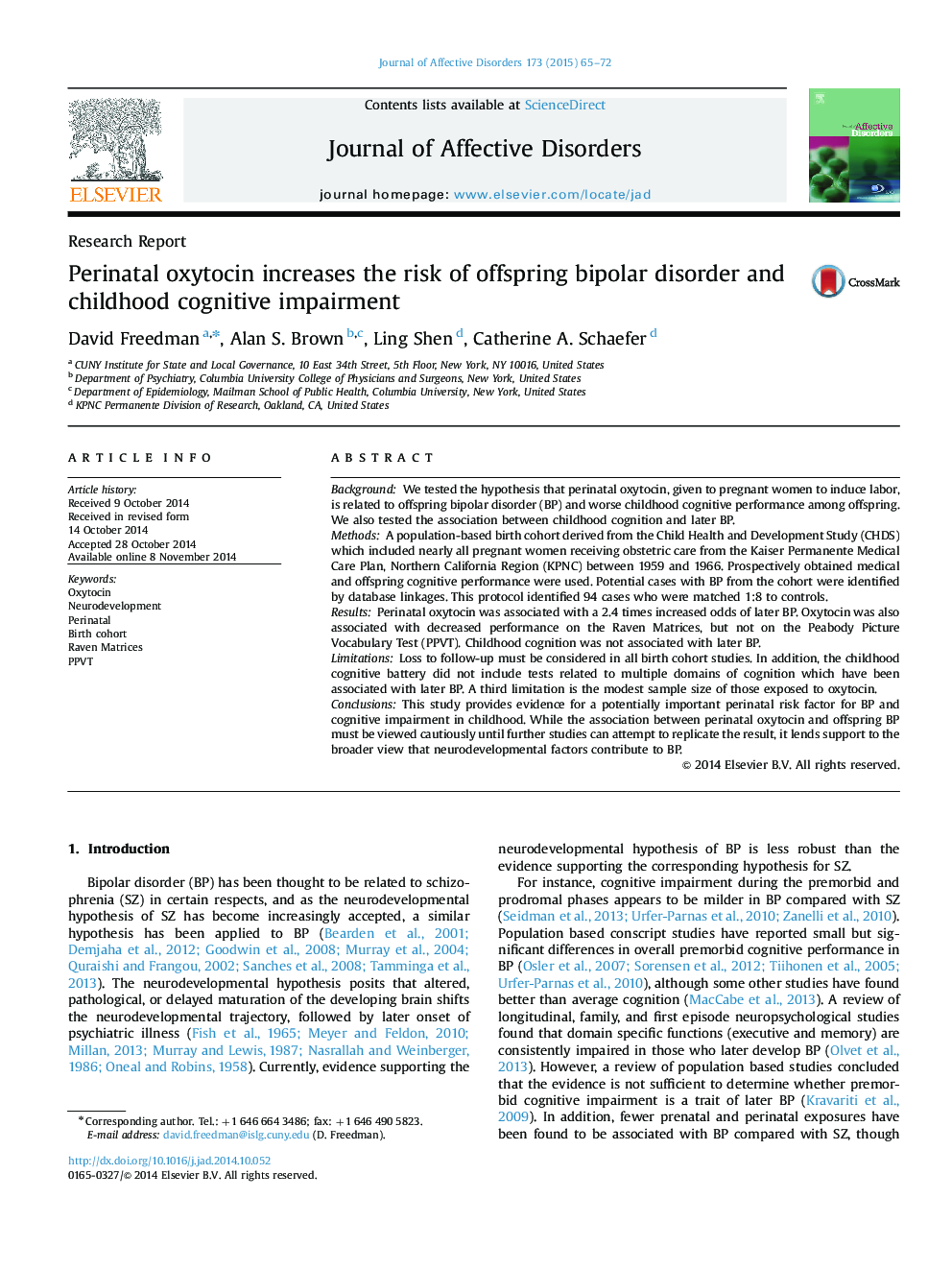| کد مقاله | کد نشریه | سال انتشار | مقاله انگلیسی | نسخه تمام متن |
|---|---|---|---|---|
| 6231837 | 1608152 | 2015 | 8 صفحه PDF | دانلود رایگان |
BackgroundWe tested the hypothesis that perinatal oxytocin, given to pregnant women to induce labor, is related to offspring bipolar disorder (BP) and worse childhood cognitive performance among offspring. We also tested the association between childhood cognition and later BP.MethodsA population-based birth cohort derived from the Child Health and Development Study (CHDS) which included nearly all pregnant women receiving obstetric care from the Kaiser Permanente Medical Care Plan, Northern California Region (KPNC) between 1959 and 1966. Prospectively obtained medical and offspring cognitive performance were used. Potential cases with BP from the cohort were identified by database linkages. This protocol identified 94 cases who were matched 1:8 to controls.ResultsPerinatal oxytocin was associated with a 2.4 times increased odds of later BP. Oxytocin was also associated with decreased performance on the Raven Matrices, but not on the Peabody Picture Vocabulary Test (PPVT). Childhood cognition was not associated with later BP.LimitationsLoss to follow-up must be considered in all birth cohort studies. In addition, the childhood cognitive battery did not include tests related to multiple domains of cognition which have been associated with later BP. A third limitation is the modest sample size of those exposed to oxytocin.ConclusionsThis study provides evidence for a potentially important perinatal risk factor for BP and cognitive impairment in childhood. While the association between perinatal oxytocin and offspring BP must be viewed cautiously until further studies can attempt to replicate the result, it lends support to the broader view that neurodevelopmental factors contribute to BP.
Journal: Journal of Affective Disorders - Volume 173, 1 March 2015, Pages 65-72
